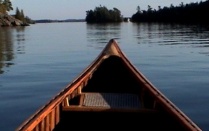Debra Kolodczak
Debra Kolodczak, PhD, is a multimedia artist, photographer, content developer, and AEM6 UX designer/editor. At the University at Buffalo, she teaches hybrid courses in graphic communication, visual literacy, and virtual media ethics.
Kolodczak's graduate work was guided by UB professors of American Studies, namely, John Mohawk, Oren Lyons, and Michael Frisch. In 2003, she was awarded a Fulbright Grant as a Research Scholar (Canada). The Fulbright, in support of dissertation research, supported a ten-month residency period during which she gathered and curated case studies to represent the centuries-long survival of indigenous peoples, particularly those living in Western New York and Southern Ontario. That work is included in her dissertation, Canoe Links: Work, Play, Symbol, Show in North America's Native/Newcomer Encounter.
By using the canoe as a way to see what is not always obvious when considering the ordinary, the study seeks to add context about how 'things' got to be the way they are and why we should care. Her work examines a central irony: North America’s original inhabitants (indigenous peoples) are among the most impoverished communities living in two of the world's wealthiest nations.
Currently, Kolodczak is developing a placed-based, environmental literacy project that aims to sustain a nature preserve around a pre-Civil War farmstead in Western New York. The 1830's era farm is adjacent to an indigenous canoe route. As a navigable creek, it is indicative of thousands of miles of inland waterways along the Great Lakes and beyond. The massive 'ancient superhighway' of indigenous canoe routes connects the top of North America to the bottom of South America. Kolodczak's work is influenced by Oren Lyons.
Contact: dmore@buffalo.edu
